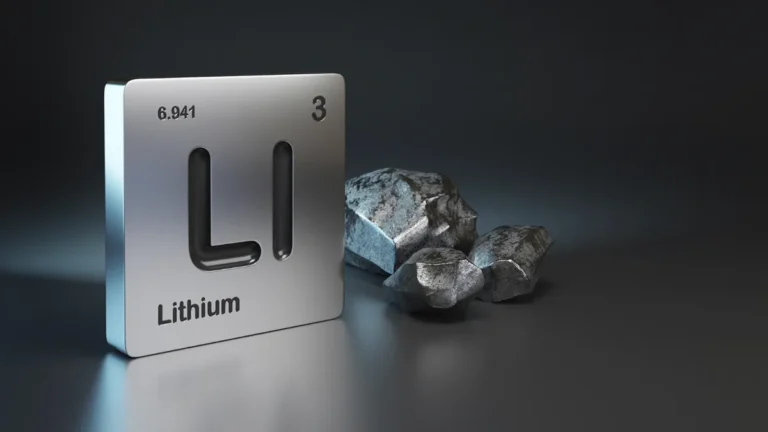Jobs That AI Can’t Replace and Careers Safe from Automation
With the advancement of artificial intelligence, the workplace dynamics are constantly changing. This might have left many feeling uncertain about their career. You might be worrying about your future employment as well. However, we have good news for you.
While AI is reshaping work, many jobs AI can’t replace. The careers safe from AI demand skills like empathy, creativity, judgment, and human connection. Automation fails to meet these requirements, which can only be fulfilled by humans. Hence, you can safely pursue these careers without worrying about AI taking over.
This article will help you explore which careers are AI-proof, why and how you can prepare for them. By having a good understanding of jobs that AI can’t replace, you can make a well-informed career choice. You can develop the skills required for a secure and in-demand career in the evolving automated era.
What jobs are safe from AI?
What jobs are AI proof? Those that cannot be automated. These are the types of jobs where the human element is crucial. Professions that are safe from AI are primarily in the health, creative, trades, and teaching sectors. These still require people’s feelings, creative imagination, judgment, physical exertion, and complex social interactions.
- Health sector
Emotional perspective and quick decision-making are needed in the care provided by physicians, nurses, and therapists. According to the U. S. Bureau of Labour Statistics, health care jobs are estimated to grow by 12.6% from 2021 to 2031. This is a new growth of almost 2 million jobs. So, what jobs will AI replace by 2030? No job involving human-centred care. - Creative professions
Professions which require original creativity include writers, designers and artists. They can use software and AI tools. However, the level of imagination and perspective provided by humans makes these professions difficult for AI to take over. - Trades
Chefs, electricians and plumbers are trades which depend on hands-on problem-solving and practical experience. They require a high degree of physical skill and flexibility. Something that technology often cannot. - Teaching and social work
Teachers and social workers are also careers safe from AI. Here, you have to deal directly with people daily. Machines can’t meet the emotional understanding and motivation provided by humans.
Top Jobs That AI Can’t Replace
The role of AI in workplaces continues to expand. However, some jobs still require unique human perception, analysis, and compassion. Fields which are centred around novel ideas, interpersonal communication, or resolving complex challenges will remain intact. You can discover professions that emphasise and value your unique competencies.
Healthcare & Allied Health

If there is any field with plenty of AI-resistant jobs, it is health care. AI cannot empathise, reason, or make sophisticated decisions. Hence, AI will have difficulty penetrating the healthcare field. Careers safe from AI healthcare require strong expertise, effective human interaction, and caring abilities.
- Doctors and Surgeons
They are the safest jobs from AI because diagnosis involves ethical consideration. Taking care of patients also demands empathy. To enter, you need a medical school degree followed by speciality training. The median salary is $249,760–$311,460 per annum with stable growth.
- Nurses and Nurse Practitioners
It is safe from AI because it involves tailored care as well as emotional understanding. To enter, pass a registered nursing program. The median salary is currently $120,680, with a projected growth of 45.7% by 2032
- Therapists & Occupational Therapists
These jobs are safe from AI as they demand emotional and recovery support. AI cannot match the depth and complexity. Degrees and clinical hours are required to meet job eligibility. The median salary is $85,570. The demand will persist due to an ageing population.
Education & Caring Roles

AI-proof careers include teachers, social care workers, psychologists and counsellors. These require relationships and ethical leadership. AI cannot inspire nor untangle complex webs of personal issues.
- Teachers
A teacher not only teaches but also inspires and motivates students. Human interaction cannot be automated. Hence, teaching is one of the jobs that AI cannot replace in education. You need to have a degree in education along with a licence to practise. The median salary is $77,440 with 21.5% projected growth.
- Social Workers
AI fails to carry out human reasoning in complex social situations. Empathy and judgment are skills automation can’t replace. To enter, you need a degree in social work along with some years of practice. The salary is $49,130–$60,840 with a projected growth of 11%.
- Psychologists & Counselors
Personalised mental health support is based on trust and emotional connection, making it irreplaceable. A graduate degree, along with supervised training, is essential to enter. Salary is $48,520 with an increasing growth in mental health services.
Creative & Communication

AI-resistant jobs in creative fields demand imagination and narrative. It is something AI can do, but not fully replicate. What jobs are AI-proof depend on their requirement for human instinct.
- Writers and Journalists
AI cannot replicate the original storytelling and journalistic curiosity that humans innately have. To enter, you need a portfolio along with writing and analytical skills. A degree is also preferable. The salary is $48,520 with persistent demand.
- Designers and Artists
There is no substitute for human creativity and originality. Sufficient training, a portfolio, and the ability to work with others are necessary to enter this field. Familiarise yourself with new tools, but your emphasis should be on personal style and concept development.
- PR Managers and Marketing Strategists
Marketing campaigns require human intuition, convincing power, and connection. Knowledge in the field of communication, creative, and critical thinking is essential. Concentrate on strategy, brand marketing, and interpersonal relations.
Skilled Trades & Hands-On Jobs

Jobs that AI can’t replace in trades include electricians, plumbers, chefs, and carpenters. The level of manual work required is difficult for AI to do. AI lacks dexterity, problem-solving, and on-site judgment.
- Electricians and Plumbers
Unpredictable tasks require human thinking and problem-solving. Work through an apprenticeship, obtain trade certificates and gain field practice. The average salary is $88,050, with consistent growth.
- Chefs and Culinary Experts
Imagination and palate modification are next to impossible for AI to replicate. Attend culinary schools, go through apprenticeships and messy experimentation. The average salary is $50,000–$60,000 with steady growth.
- Carpenters and Craft Specialists
Manual skills with creative solutions remain human tasks. Detail-oriented, with guidance from seasoned workers, will be very helpful for beginners. Construction, restoration, or custom skills for each project will be beneficial.
Management, Leadership & HR

Careers safe from AI are the positions of Leadership and HR. AI-resistant jobs in management include project managers, HR specialists, and business leaders. They perform judging, strategising, and personal relations that AI can’t replicate easily.
- Project Managers
Humans are needed for solving intricate problems and coordinating the different teams. Experience, organisational skills, and PMP certification training will be helpful to enter the field.
- HR Specialists and Team Leaders
Emotions are critical to managing people and resolving conflicts. Skills to enter include an HR degree, recruitment, and strong communication. Learn practices that advance equity and inclusion.
- Business Leaders
Vision, ethics, and team motivation are uniquely human. To enter, you need experience, strategic thinking, and decisiveness. Maintain focus on ethical leadership and organisational resilience.
Legal, Financial & Specialised

What jobs will AI not replace will involve working with judgment, complex reasoning, and advisory are still very much human. AI is unable to replace those functionalities. Such high-paying AI-proof jobs include lawyers, financial advisors, and veterinarians.
- Lawyers and Legal Professionals
Human reasoning, ethics, and argumentation are some skills only humans possess. To enter the field, you need degrees in law, clerkships, and synthesised thinking. The average salary is $100,950–$311,460 with a steady demand.
- Financial Advisors
Providing strategic and targeted guidance requires planning. Humans do it better than AI. To enter, you need certification in Financial Planning, reasoning and communication. The average salary is $90,000 with projected growth of 6–7%.
- Veterinarians
Diagnostics, empathy, and care involve something AI can’t replace. To enter, you must have a veterinary degree along with clinical skills. The average salary is $120,000 with a steady demand.
High-Paying AI-Proof Jobs
There are careers safe from AI. These high-paying AI-proof jobs are often the most creatively rewarding and socially engaging. With their predicted demand increasing, pursuing them can significantly help in securing the future of your employment.
- Physician Assistant
It is safe because it requires applying complex medical skills and interacting with the patient. To join, you must have PA certification. Median salary is about $133,260.
- Nurse Practitioner
AI cannot replace this job due to the tailored healthcare needs, advising, and diagnosing a patient. To become a registered nurse, you must have a nursing degree as well as post-graduate advanced nurse practitioner certification. Median salary is $132,050.
- Computer and Information Research Scientist
AI cannot carry out new technologies, algorithms, and advanced creative solutions. For this, you need a degree in computer science along with programming and research skills. The median salary is $149,910.
- Lawyers
Translating intricate legal concepts and advocating for the clientele make lawyers irreplaceable by AI. To become a lawyer, you need a degree in law and pass the bar. The median salary is $126,000.
- Pharmacists
It’s safe as it involves patient counselling, medication safety, and personalised care that cannot be automated. To enter, you need a doctor of pharmacy degree and a licence to practise. The median salary is $128,710.
Jobs at Risk from AI
There are many jobs at risk from AI. If roles involve repetitive tasks automation can easily take over them. Automation is sought after as it makes the workflow cost-effective. So, workers in these sectors need skill training to stay relevant. They might end up changing their careers as well.
- Data Entry Clerks
Automation can easily process the rule-based repetitive tasks. This makes AI technology more efficient than human workers.
- Telemarketers
Many tasks in the selling process, like scripts and customer outreach, can be done easily by bots.
- Routine Accountants & Bookkeepers
Automated systems can easily manage standardised bookkeeping and simple account management.
- Retail Cashiers
Self-checkouts and other automated payment systems have eliminated the need for human interaction. As stores continue to adopt automated systems, these jobs are likely to decline.
- Fast Food Workers
The process from simple cooking and placing an order is done with the simple push of a button. The entire process can be automated.
- Administrative Assistants
Filing, arranging and storing of data are complex tasks done easily with automation. The administrative roles will decrease over time as AI tools are likely to take over them.
What jobs will AI replace by 2030?
You will see that by 2030, many repetitive as well as predictive tasks will become fully automated. With the advancement of AI, the potential jobs at risk from AI are:
● Data entry jobs requiring the clerical processing of tons of information.
● Telecommunication sales agents executing pre-determined scripts and making outbound calls.
● Entry-level accountants and bookkeepers.
● Cashiers in retail stores and supermarkets.
● Employees in the Fast Food industry performing basic order processing and batch cooking.
● Employees in Administrator positions performing scheduling, basic filing, and simplistic report generation.
AI will soon take over these tasks to enhance efficiency and cost-effectiveness. However, any task that demands creativity, emotion, or advanced judgment will still exist. The best approach in today’s evolving workplace is to improve one’s digital competency, critical thinking and people skills.
How to Future-Proof Your Career
To survive in the changing job market, you should focus on skills that machines cannot replicate. So, how to make your career AI-proof? Some practical steps are required for this. For example, focusing on creativity, critical thinking, and clear communication. These strengthen your ability to adapt and survive during AI changes.
- Assess Your Current Role
Consider which tasks in your job can be outsourced to AI. Focus on the essentials that cannot be automated. These are usually tasks that require decision-making, creativity, and effective interpersonal communication. Your contribution will be valuable for these AI-resistant jobs.
- Upskill Continuously
Understand the emerging technologies and the specific tools and platforms relevant to your domain. Improve your knowledge in soft skills like clear communication, emotional and social intelligence, and teamwork. This will sharpen your technical skills. Short online courses and certifications have improved professional skills. So, people can remain relevant in their roles.
- Showcase Your Value
Illustrate and defend the value you create and the personal achievement that supports the organisation’s strategy. For AI-proof careers, focus on the achievements that demonstrate your ability to think, create, and analyse. Networking, portfolios and presentations are great mediums that can showcase your skills that AI cannot replace.
Conclusion
While AI advancement has brought many benefits to workplaces, the change also brought many threats. Some careers have become uncertain as automation has made them replaceable. However, there are still many jobs that AI can’t replace. As they demand unique human abilities such as creativity, empathy, and critical thinking. These professions are considered careers safe from AI, offering stability in a rapidly evolving job market.
Some skills include creativity, empathy, judgment, and adaptability. If you focus on making such skills your strength, you can easily adapt to the evolving workplace dynamics.
Change is always tricky. So, evaluate your position in your career. Look for tasks that automation can do. Try to fill the gaps which AI can’t. For this, you can opt for short courses or training programs. Ensure that you have good critical thinking, communication, and problem-solving abilities.
If you are starting, redirect your career path towards jobs that AI can’t replace. This will help you stay employed no matter how the AI technology evolves.






